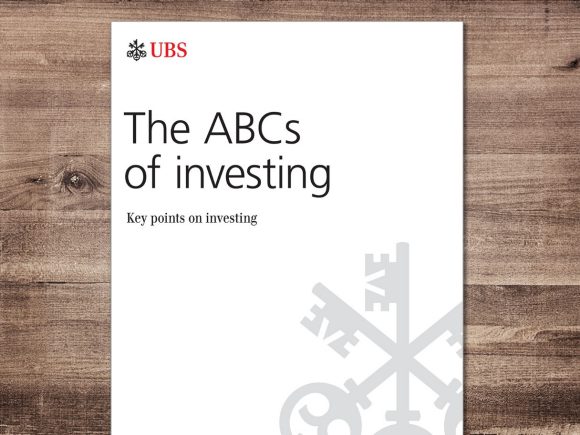We’re here for you
Arrange an appointment for a nonbinding consultation, or if you have any questions, just give us a call.

![]()
header.search.error
Dividend-paying stocks
Dividends are a welcome and generally regular source of income for investors. They also contribute to greater portfolio stability and offset share price losses. Read all you need to know at a glance.
Content:

Dividends are a welcome source of income for most shareholders, alongside increases in stock prices. They allow you to participate directly in a company’s profit and build your own wealth. But to make good use of dividends, you need to know what they are.
If you buy a stock, you become a shareholder of the respective stock corporation. This makes you a co-owner of the company, entitling you to a share in the company profits. If the company in which you hold shares closes the financial year successfully, two things can happen: It either reinvests all the profit directly back into the company or distributes part of it – in the form of dividends. This can be done annually, semi-annually or quarterly.
Dividends are paid out per share, i.e., the more shares you own in a company, the higher your share of the payout. Since dividends are performance-based, your share of the profits will vary from fiscal year to fiscal year.
When do companies pay dividends?
Over 80 percent of the companies traded on the Swiss stock exchange SIX Swiss Exchange choose not to reinvest the entire profit and regularly pay out dividends.
In principle, the higher the annual profit, the more is distributed. However, there are companies that barely make a profit – yet still pay dividends. If this is the case, the company will have either built up reserves for future dividends in good years or the management wants to send a positive signal to its shareholders. If the dividend decreases or is not paid at all, this may be a sign that the company is in financial trouble. This signal can in turn cause a fall in the share price. To get an idea of whether the company could also pay a dividend in the future, it is worth taking a look at the dividend policy of previous years and at the “free cash flow” figure, which is the sum of the funds that are freely available to the company after all expenses within a given period.
There are two possible reasons why a corporation does not pay dividends:
Many factors can influence the decision for or against a dividend.
Know your money is in safe hands
Invest with UBS and decide how much advice you want from us and what decisions you’d rather make yourself. We look forward to assisting you
What does the dividend say about the company?
Companies that regularly pay out attractive dividends tend to have a less risky business model. They are therefore often considered a safe haven, especially in times of turbulence on the markets. Over a longer period, they have delivered higher returns compared to the broader stock market while simultaneously being lower risk.
However, growth companies that do not pay dividends can still be of high value – and be attractive to investors. This is shown by the examples of Alphabet (Google) and Meta Platforms (formerly Facebook) or Tesla. All three companies are forward-looking and reinvested their profits directly in their expansion. Their image, coupled with the industry’s chances of success, made buying shares in these and similar companies attractive despite the absence of a dividend payout.
A high dividend for shareholders is not always positive, because the dividend may not necessarily reflect the company’s situation.
A high dividend yield can be the result of a share price that is too low or because the company pays out too high a dividend, which is not covered by profits.
So how can you independently determine a company’s chances of paying out dividends? To reach your own conclusion, you should check all the key figures, which include return on equity, a good free cash flow, a consistently solid balance sheet, stable management, a future-proof business model and good long-term positioning in a competitive industry environment.
Private investors can find it difficult to gain an overview and assess the figures. It is therefore advisable to rely on professional investment advice. UBS will be happy to assist you.
The dividend yield is the ratio of the dividend to the share price. For example, if your stock is trading at CHF 100 and the company pays out three Swiss francs per share, your dividend yield is three percent. This is the percentage that investors receive through the dividend payout.
The dividend yield is an important metric for many investors. Compare various dividend yields and you’ll see at a glance which stocks offer the highest return on your investments. In general, the following applies: the higher the dividend yield, the better.
Apart from a crisis in a single company, a global economic downturn can lead to falls in profit – and consequently to a reduction in dividends. In the event of a major economic upheaval, the state tax authorities may also advise some companies to suspend dividend payments altogether or even compel them to do so.
What are the advantages and disadvantages of dividend-bearing securities?
Dividend-bearing securities or stocks have the advantage of generating regular income, regardless of their price performance. They can also help to cushion losses during bear markets, i.e., phases in which prices fall steadily, and offer a degree of stability to your portfolio, as dividend-bearing securities tend to be less volatile. Additionally, companies that pay dividends are usually in a stable financial position.
The flip side of the coin is that if a company has to change its dividend strategy and reduce or even stop dividend payments, this can have a detrimental impact on the share price. Such strategic changes are often perceived by investors as a negative signal for the company’s long-term prospects. As a result, your income is reduced not only by the lack of capital gains, but also by lower or non-existent dividends.

How to buy dividend-bearing securities?
If you want to invest in stocks or other securities, you first need to decide whether you want to do it yourself or delegate this task to a bank. If you want to do this yourself, it is best to open a custody account.
Dividend-bearing securities are available as shares in individual companies, but you can also invest in funds (including ETFs) that focus on these securities – thus spreading the risks of price and dividend fluctuations across a large number of companies.
What should you look for when buying dividend-bearing securities? A good gauge is the dividend yield, which is the ratio of the dividend to the stock price. However, for long-term investment success, UBS recommends the following combination:
Stocks that meet these criteria are also referred to as high-quality dividend-bearing securities or “dividend pearls.”
When are dividends paid out?
British and American companies pay dividends either quarterly, semi-annually or annually – depending on their dividend policy. Annual dividend payments are common in Germany, Austria and Switzerland.
The procedure is always the same and regulated by law. After the end of the fiscal year, the Board of Directors proposes the amount of the dividend per share. This proposal is adopted at the Annual General Meeting. The dividend is paid out shortly afterwards. To be eligible for the dividend, you must be in possession of the share on the day of distribution, the so-called ex-date, usually shortly after the Annual General Meeting.
Annual General Meetings are held between February and July at the latest, with April being the peak season (“dividend season”) in the dividend year in Switzerland.
Are there tax-free dividends?
Like any income, dividends must be taxed. However, the term “tax-free dividends” often appears in company annual reports.
The reason is that dividends are normally financed from retained earnings. However, if a corporation has capital contribution reserves, it may use these reserves for dividend payments. Capital contribution reserves arise when buyers pay more than the stated nominal value per share in a capital increase. As the capital actually belongs to the shareholders, this repayment is tax-free for most private investors in Switzerland. Since the corporate tax reform in 2008, “tax-free dividends” are exempt from both income tax and withholding tax.
The term “tax-free dividends” therefore refers to tax-free repayments of capital contribution reserves to the shareholders.
In an investment strategy focused on returns, dividends are typically reinvested in stocks that also pay dividends. If investors consistently reinvest their dividend-bearing securities, they can multiply their returns over a longer period. Because with this type of reinvestment, the return increases exponentially – due to the compound interest effect.
The following graphic illustrates how the reinvestment of dividend distributions would have affected the S&P 500 Index of the US stock market. The return is compared with and without reinvestment of dividend distributions.
At the end of the “dividend season,” rebalancing makes sense. This involves checking how best to invest the dividends paid out so that the proportions of various asset classes are once again in line with your strategy. Doing so gives you the best chance of ensuring that your assets are invested in a diversified portfolio and will grow in a risk-optimized manner over the long term.
Corporations usually distribute their dividends annually to shareholders. Whether and to what extent they do so depends on the company’s earnings. The amount is proposed by the Board of Directors at the Annual General Meeting and decided together with the shareholders.
Dividends are an interesting source of income for many private investors. This is because dividend stocks generally come from long-term stable and successful companies that give their investors the opportunity to participate in capital gains. Many questions arise deciding what to choose. What should you pay attention to, how do you find the so-called “dividend pearls” and last but not least, how should you use the dividend payouts?
The best way to get answers to these questions is to seek professional advice from UBS. After all, successful investing is complex, and the right strategy needs to align with your financial situation.
Arrange an appointment for a nonbinding consultation, or if you have any questions, just give us a call.
Disclaimer